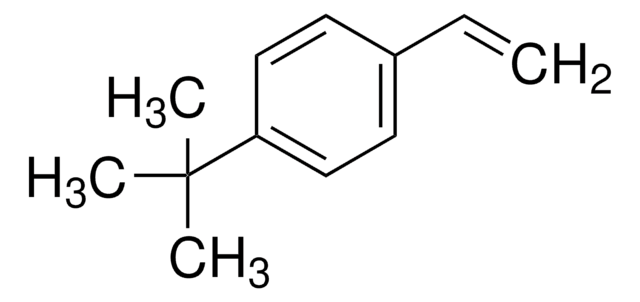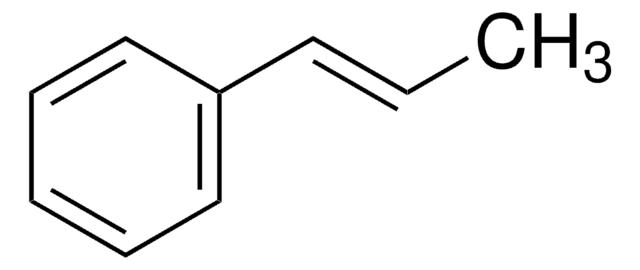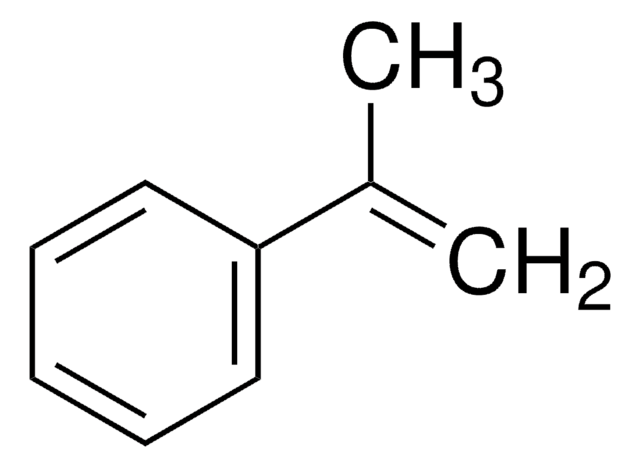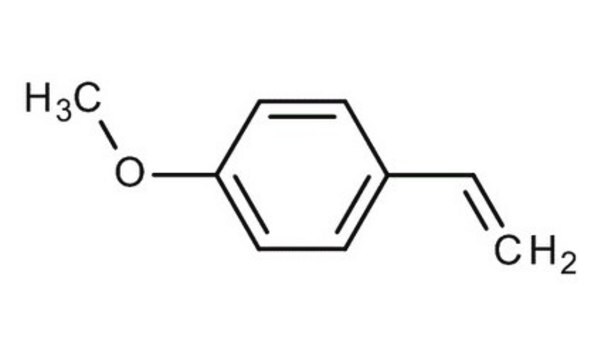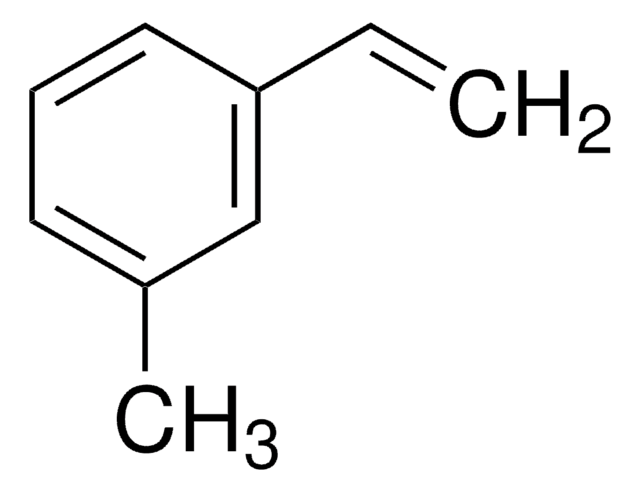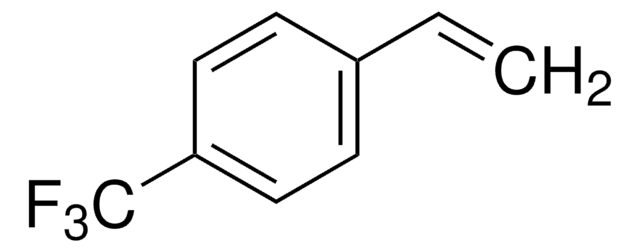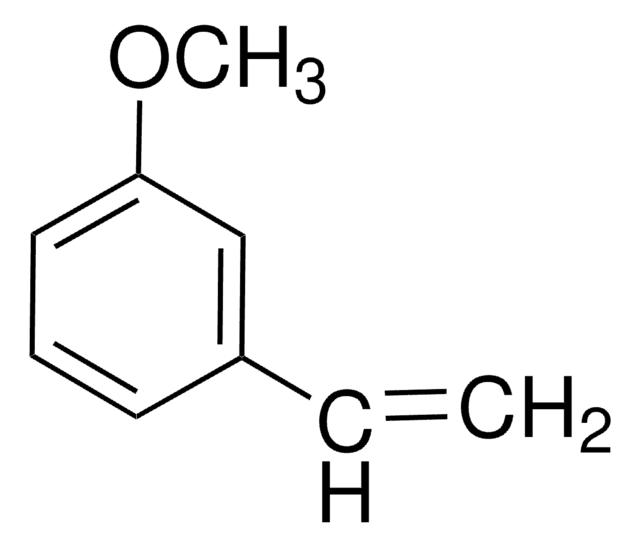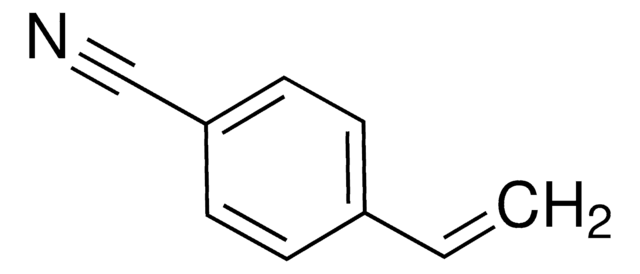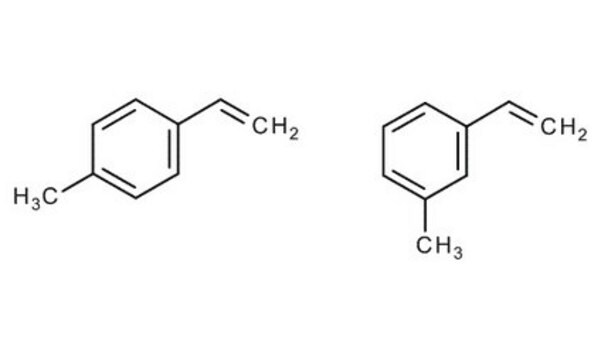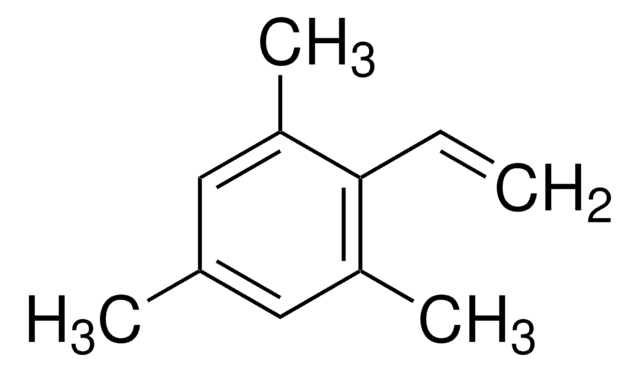M80806
4-Methylstyrene
96%, contains 3,5-di-tert-butylcatechol as inhibitor
Synonym(s):
4-Vinyltoluene
About This Item
Recommended Products
vapor pressure
<1 mmHg ( 20 °C)
Quality Level
Assay
96%
form
liquid
autoignition temp.
959 °F
contains
3,5-di-tert-butylcatechol as inhibitor
expl. lim.
5.3 %
refractive index
n20/D 1.542 (lit.)
bp
170-175 °C (lit.)
density
0.897 g/mL at 25 °C (lit.)
storage temp.
2-8°C
SMILES string
Cc1ccc(C=C)cc1
InChI
1S/C9H10/c1-3-9-6-4-8(2)5-7-9/h3-7H,1H2,2H3
InChI key
JLBJTVDPSNHSKJ-UHFFFAOYSA-N
Looking for similar products? Visit Product Comparison Guide
General description
Application
Signal Word
Danger
Hazard Statements
Precautionary Statements
Hazard Classifications
Aquatic Chronic 2 - Asp. Tox. 1 - Flam. Liq. 3
Storage Class Code
3 - Flammable liquids
WGK
WGK 3
Flash Point(F)
113.0 °F
Flash Point(C)
45 °C
Personal Protective Equipment
Regulatory Listings
Regulatory Listings are mainly provided for chemical products. Only limited information can be provided here for non-chemical products. No entry means none of the components are listed. It is the user’s obligation to ensure the safe and legal use of the product.
FSL
Group 4: Flammable liquids
Type 2 petroleums
Hazardous rank III
Water insoluble liquid
JAN Code
M80806-500ML:
M80806-100ML:
M80806-BULK:
M80806-10ML:
M80806-10G:
M80806-500G:
M80806-VAR:
M80806-100G:
Choose from one of the most recent versions:
Already Own This Product?
Find documentation for the products that you have recently purchased in the Document Library.
Customers Also Viewed
Articles
The Heck reaction is the palladium catalyzed cross-coupling reaction between alkenes and aryl or vinyl halides (or triflates) to afford substituted alkenes.
Our team of scientists has experience in all areas of research including Life Science, Material Science, Chemical Synthesis, Chromatography, Analytical and many others.
Contact Technical Service